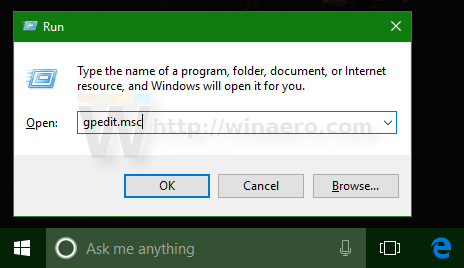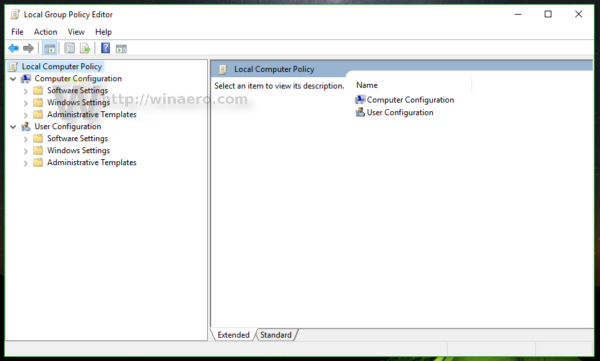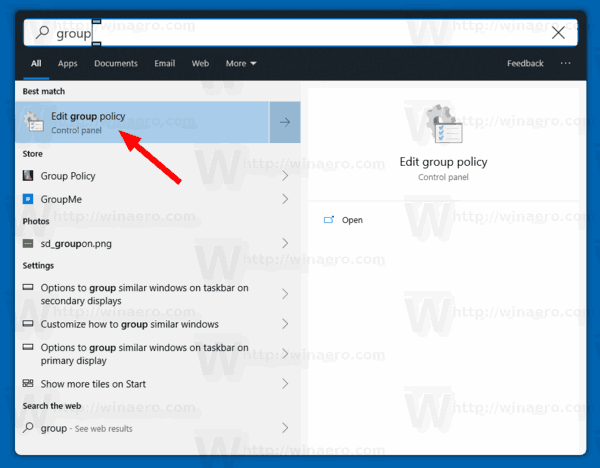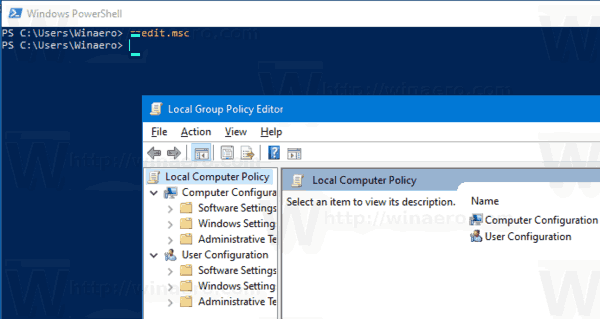How To Open Local Group Policy Editor in Windows 10
The Local Group Policy Editor is a Microsoft Management Console (MMC) snap-in that provides a single user interface through which all the settings of Local Group Policy objects can be managed. This article explains various methods you can use to access the Local Group Policy Editor app.
Advertisеment
Note: Local Group Policy Editor is not available in certain editions of Windows 10. Only Windows 10 Pro, Enterprise, or Education edition include the Local Group Policy Editor app.
Local Group Policy Editor includes objects that apply to a computer (all users) and users (a specific user account, group, or per-user software software settings). It consists of two parts.
- Computer Configuration is used to set policies that will be applied to a computer. The change software settings, Windows settings, and administrative templates for all users. They typically change Registry keys under the HKEY_LOCAL_MACHINE Registry branch and require restarting the computer to make the change to take effect.
- User Configuration is a set of policies that apply to users. User Configuration comes with options for software settings, Windows settings, and administrative templates stored in the per-user Registry branch (HKCU).
Note: Certain options can be configured for both User Configuration and Computer Configuration. Such values can be stored in both HKCU and HKLM Registry branches. When both parameters are set, User Configuration takes precedence over the Computer Configuration value.
To Open Local Group Policy Editor in Windows 10,
- Press Win + R keys together on your keyboard and type:
gpedit.msc. Press Enter.
- Group Policy Editor will open.

- Go to Local Computer Policy > User Configuration or Local Computer Policy > Computer Configuration depending on what you want to change.
You are done.
Also, you can use Windows Search to find the app if it is available in your edition of Windows 10.
Open Local Group Policy Editor in Search
- Open Windows Search. Click on the Search icon, press
Win + S, or just start typing in the Start menu. - Type
gpedit.mscorgroup policyin the search box.
- Select Edit group policy and hit the Enter key.
This will open Local Group Policy Editor.
Open Local Group Policy Editor from Command Prompt or PowerShell
- Open a new command prompt.
- Alternatively, you can open a PowerShell instance.
- Type
gpedit.mscand press the Enter key.
You are done.
Articles of interest:
- Force Update Group Policy Settings in Windows 10 Manually
- How To See Applied Group Policies in Windows 10
- See Applied Windows Update Group Policies in Windows 10
- Apply Group Policy to All Users Except Administrator in Windows 10
- Apply Group Policy to a Specific User in Windows 10
- Reset All Local Group Policy Settings at once in Windows 10
Support us
Winaero greatly relies on your support. You can help the site keep bringing you interesting and useful content and software by using these options:
Bitcoin: 18amKj99FCPUfnnpqZ6XCG2h3TGeUTCeY7
